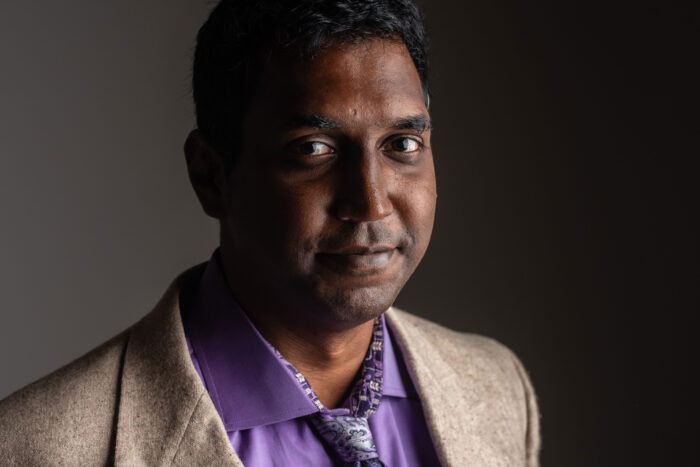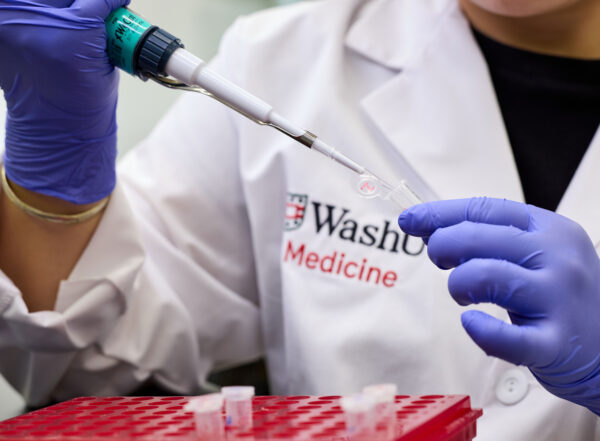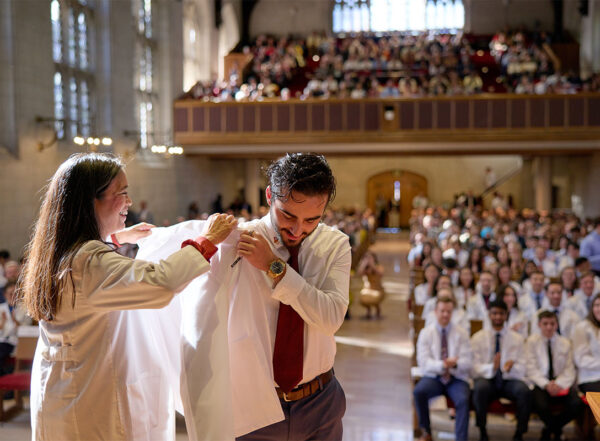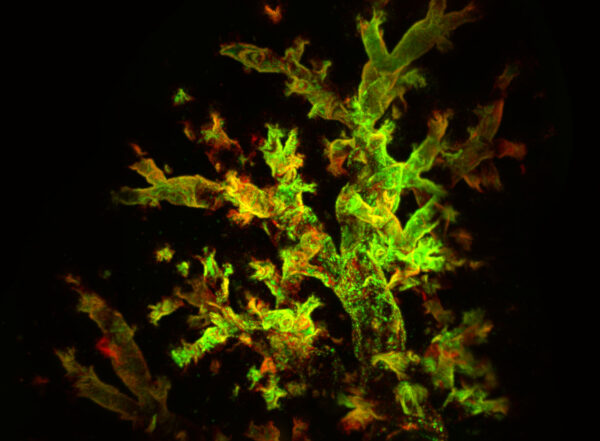Swamidass named AAAS fellow
Recognized for contributions to computational biology, outreach to faith communities
 Henson Creative Photography
Henson Creative PhotographyS. Joshua Swamidass, MD, PhD, an associate professor of pathology & immunology at Washington University School of Medicine in St. Louis, has been named a fellow of the American Association for the Advancement of Science. He is recognized for applying machine learning to chemical biology and medicine, and for extraordinary public outreach promoting an understanding of science among communities of faith.
S. Joshua Swamidass, MD, PhD, an associate professor of pathology & immunology at Washington University School of Medicine in St. Louis, is among 505 new fellows named by the American Association for the Advancement of Science (AAAS), the world’s largest general scientific society and publisher of the Science family of journals.
Swamidass is being honored for his work in applying machine learning to chemical biology and medicine, with a particular focus on drug discovery and how drugs are processed in the body. He also is being recognized for extraordinary public outreach promoting an understanding of science among communities of faith.
Swamidass has developed artificial intelligence algorithms to investigate how drugs are processed in the body and demonstrated that such processing plays a key role in the safety, efficacy and dose of medicines. Recently, in a study of de-identified electronic health records, he used machine learning to identify combinations of drugs that can cause liver problems when used together. Drug-drug interactions are a major cause of adverse events in people taking multiple medications, but it is challenging to identify which combinations of the more than 20,000 available prescription drugs are harmful.
His public outreach advances understanding of human evolution and of race and racism within communities of faith. His 2019 book, “The Genealogical Adam and Eve,” proposes a reading of the biblical story of Adam and Eve that is consistent with evolutionary science. The book also explains scientific problems with the theory of polygenesis, the debunked idea that different races of people arose independently in different parts of the world. This discredited theory contributes to systemic racism by articulating inaccurate and disproven ideas about inherent racial differences.
He also served as an adviser for the exhibit “Scripture and Science: Our Universe, Ourselves, Our Place” at the Museum of the Bible in Washington, D.C. The exhibit, which runs through January 2024, explores the Bible’s role in the historical relationship between science and religion.
Swamidass is also an associate professor of biomedical engineering and of computer science & engineering at the university’s McKelvey School of Engineering. He earned his bachelor’s, master’s, medical and doctoral degrees from the University of California, Irvine. He joined the School of Medicine faculty in 2010.






